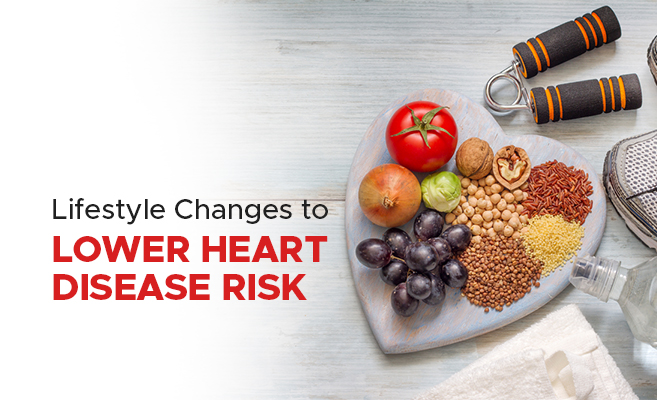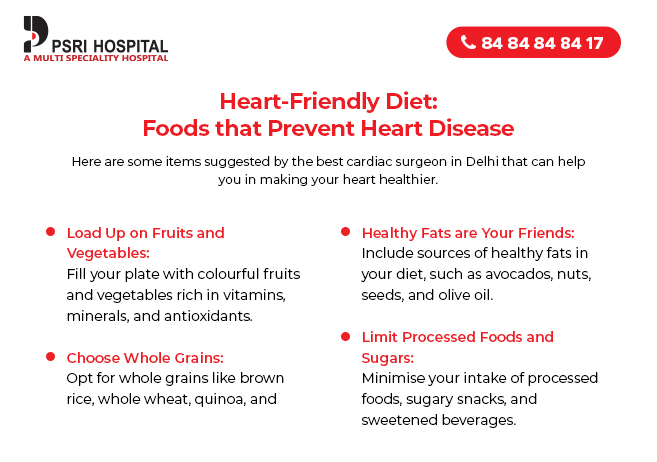Lifestyle Changes To Lower Heart Disease Risk

Heart disease is a leading cause of death worldwide, but the good news is that there are simple lifestyle changes you can make to significantly lower your risk. By focusing on the right habits, you can take charge of your heart health and enjoy a fuller, healthier life.
In this blog post, we’ll explore key lifestyle changes for heart disease, the importance of exercise in preventing heart attacks, and the foods that can help keep your heart strong. So let’s get started.
Move Your Body: The Power of Exercise
Regular exercise has many health benefits for your heart beyond just improving physical fitness. It is a strong medicine for your heart. Exercise on a daily basis is simply giving your heart the time and care it needs. Here’s why and how you can get moving for a healthier heart:
1. Brisk Walking:
A simple but incredibly powerful workout that boosts heart rate and blood flow is brisk walking. It can be performed in almost any place and is easy on the joints. When the weather is bad, go for a stroll through your neighbourhood, the park, or even a shopping centre. Even just thirty minutes a day of walking can make a big difference in your cardiovascular health.
2. Cycling:
A low-impact aerobic activity that is great for your heart and easy on your joints is cycling. Riding a bicycle, whether indoors on an exercise bike or outside on beautiful routes, is a great method to increase your cardiovascular fitness.
3. Swimming:
Swimming is a great cardiovascular exercise since it works all of the major muscle groups in the body. As it is gentle on the joints, it is especially helpful for people with arthritis or joint pain. Your muscles are challenged by the water’s resistance, which increases your strength and stamina.
4. Dancing:
Dancing is not only a joyful form of self-expression but also a fantastic cardiovascular workout. Whether you’re into salsa, hip-hop, ballroom, or even just freestyle dancing in your living room, dancing elevates your heart rate and improves circulation. So, put on your favourite tunes, move to the rhythm, and let your heart dance to the beat.
Heart-Friendly Diet: Foods that Prevent Heart Disease
Here are some items suggested by the best cardiac surgeon in Delhi that can help you in making your heart healthier.

a. Load Up on Fruits and Vegetables:
Fill your plate with colourful fruits and vegetables rich in vitamins, minerals, and antioxidants. These nutrients protect your heart by reducing inflammation and improving blood vessel function. Berries, citrus fruits, leafy greens, and tomatoes are excellent choices.
b. Choose Whole Grains:
Opt for whole grains like brown rice, whole wheat, quinoa, and oats. These grains are packed with fibre, which helps lower bad cholesterol levels (LDL) and reduce the risk of heart disease in women.
c. Healthy Fats are Your Friends:
Include sources of healthy fats in your diet, such as avocados, nuts, seeds, and olive oil. These fats contain omega-3 fatty acids that are known to lower the risk of heart disease. Fatty fish like salmon and mackerel are also great choices.
d. Limit Processed Foods and Sugars:
Minimise your intake of processed foods, sugary snacks, and sweetened beverages. These items can contribute to weight gain, high blood pressure, and unhealthy cholesterol levels.
Lifestyle Changes For Heart Disease
a. Quit Smoking:
The best present you can offer your heart is to stop smoking. Smoking raises your risk of heart disease significantly and destroys your blood vessels. To help you give up smoking permanently, ask friends, family, or a quit-smoking program for support.
b. Moderate Alcohol Consumption:
Although some research indicates that consuming red wine, in particular in moderation, may be beneficial to the heart, it’s important to do so. Drinking too much alcohol can cause obesity, high blood pressure, and other health problems. If you do drink, limit your intake to one drink for women and up to two for men per day.
Conclusion: Embrace Heart-Healthy Habits
Incorporating these lifestyle changes for heart disease into your daily routine doesn’t have to be daunting. Start small, set achievable goals, and celebrate your progress. Remember, a healthy heart is the foundation for a vibrant life.
By making these simple changes, you’re investing in a healthier and happier future. So, if you are looking for the best hospital for heart surgery in Delhi, Our expert and best cardiac surgeon in Delhi can help you live a life free from any heart health concern. PSRI Hospital is here to help you. Book an appointment now to know more.
FAQs
- FAQ: Can I prevent heart disease by just changing my diet?
Answer: A heart-healthy diet is important, but it works best when paired with regular exercise and other lifestyle modifications. Exercise and a well-balanced diet high in fruits, vegetables, whole grains, and healthy fats can help manage blood pressure, weight, and cholesterol—all of which are critical heart disease prevention factors.
- FAQ: How can stress affect heart health, and what can I do to manage stress effectively?
Answer: Chronic stress can contribute to heart disease by elevating blood pressure and promoting unhealthy habits like overeating or smoking. To manage stress, consider relaxation techniques such as deep breathing, yoga, meditation, or hobbies that bring joy. Building a strong support system, staying socially connected, and prioritising self-care are also effective stress management strategies.
- FAQ: Are there specific foods that can actively lower my risk of heart disease?
Answer: Yes, certain foods actively promote heart health. Foods rich in omega-3 fatty acids, like fatty fish (salmon, mackerel), flaxseeds, and walnuts, help lower cholesterol and inflammation. Antioxidant-rich foods such as berries, leafy greens, and tomatoes support overall cardiovascular function. Additionally, foods high in soluble fibre, like oats and legumes, help reduce bad cholesterol levels, further reducing heart disease risk.

 Book An Appointment
Book An Appointment Virtual Consultation
Virtual Consultation





